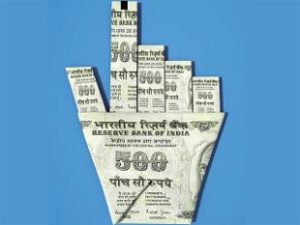
The world’s two biggest central banks will move decisively in opposing directions next week, with the European Central Bank (ECB) almost certain to ease policy on Thursday and a US jobs report likely to seal the case for a Fed rate hike in December.
Building a solid case for more easing on fears of anemic inflation, the ECB has all but committed itself to action, with the markets now guessing only about what exact steps it will take to kick-start price growth.
Still, there is plenty of room for surprises. The ECB will contemplate a wide range of measures, from a fairly uncontroversial deposit rate cut to more extreme – but highly unlikely – moves such as buying rebundled non-performing loans to resurrect bank lending.
“With expectations high, the risk of disappointment is also high but as concerns are correctly focused on the structural headwinds to the inflation outlook, there is really no point in holding back or saving ammunition at this stage,” Societe Generale said in a note to clients.
ECB President Mario Draghi has done his share to raise expectations. He has warned about increased risks to growth and inflation, and said “we will do what we must” to raise inflation as quickly as possible.
A Reuters poll of more than 50 economists predicted that the ECB would opt for a deposit rate cut to -0.3 per cent from -0.2 per cent, an expansion of its asset buying program to euro 75 billion per month from euro 60 billion, and an extension of that buying beyond September 2016.
There are a range of variations on this pattern, though. The ECB could opt for a deeper deposit rate cut, or it could add assets like corporate or municipal debt to those that it buys. It could even set a staggered deposit rate, punishing those who park large amounts of cash in its vaults.
The biggest complication to all this is the small but significant group of opponents to such action, led by Bundesbank chief Jens Weidmann and board member Sabine Lautenschlaeger, who broke ranks with their Governing Board peers recently to openly oppose further easing.
Overwhelm
Arguing that loose monetary policy poses risks and merely buys time to fix structural problems, Lautenschlaeger has taken a stance against any more steps, especially an expansion of the asset-buying program.
Draghi may have his work cut out bridging the gap between their views, as the ECB rarely votes at meetings and instead decides on policy with the broadest possible consensus.
His opponents could also make it tough for Draghi to continue his practice of promising big things, then exceeding the already heightened expectations.
“Expectations have increased further ahead of next week’s ECB meeting and ECB speakers have not done much to rein in expectations.
Draghi has overdelivered in the recent past but it could be harder this time given how much has been promised,” Deutsche Bank analysts wrote in a note to investors.
Citigroup said that to surprise the markets, the ECB would need to cut the deposit rate, increase its monthly bond-buying and adjust its forward guidance by extending the program or removing its reference to ending it next September.
While the euro area struggles with weak growth and high unemployment, the US is continuing to create jobs quickly. Data on Friday is expected to show that US non-farm payrolls increased by 200,000 in November, keeping the jobless rate at a 7-1/2 year low of 5.0 per cent.
But even if the figures disappointed somewhat, the Fed is still expected to hike at its meeting on December 15-16 given near full employment, with the debate likely shifting to future rate hikes rather than near term moves.
The biggest headwind for the Fed could be the dollar’s rapid firming against major currencies in recent months, which has already effectively tightened monetary conditions. But U.S. trade is less exposed to currency moves than elsewhere, such as in Europe, so the impact on policy is smaller.
Fed Chair Janet Yellen’s testimony to the Joint Economic Committee of the Senate on the economic outlook, due at the same time as Draghi’s press conference, will likely give more clues about the Fed’s next moves.
Among other top central banks, the Reserve Bank of Australia and the Bank of Canada are both expected to keep rates on hold with their respective economic outlooks in line or slightly better than their previous forecasts.







